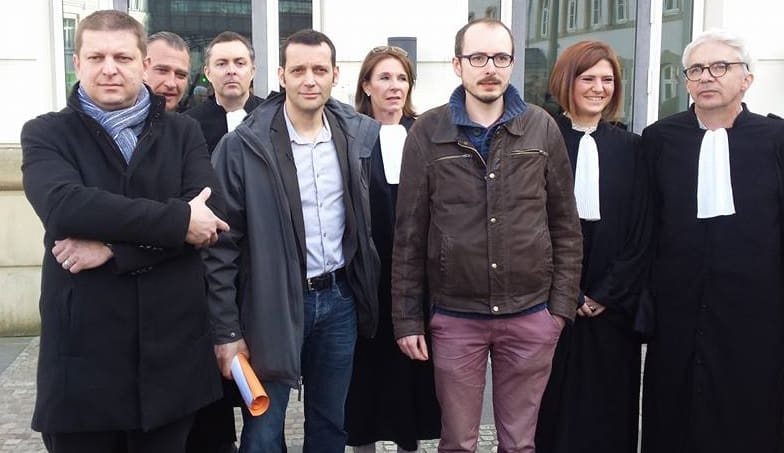The ‘Luxleaks’ case
Media Defence has filed a third-party intervention in the case of Halet v Luxembourg (also known as the ‘Luxleaks’ case) at the Grand Chamber of the European Court of Human Rights (ECtHR). The applicant, Mr Halet, was one of two whistle-blowers behind the disclosure of PricewaterhouseCoopers’ (PwC) internal company documents to a French journalist, helping to expose widespread tax avoidance. The luxleaks documents were used in a television program about multinational companies and the payment of tax and were published online by the International Consortium of Investigative Journalists in 2014. Following these revelations, the OECD branded Luxembourg as non-compliant with international standards on tax transparency and placed it on a blacklist of non-co-operative jurisdictions.
Mr Halet was convicted in the Luxembourg courts on several charges, including theft, breach of professional secrecy and breach of trade secrets, and fined €1,000. In May 2021, a Chamber of the ECtHR held that Mr Halet’s criminal conviction was compatible with the right to freedom of expression. It found that the domestic courts had carried out an appropriate balancing exercise between the harm apparently caused to PwC and Mr Halet’s right to expression. It also endorsed the approach of the domestic court, that the finding that the disclosed documents did not contain information that was “essential, new and unknown”, was a legitimate consideration in its analysis of those competing rights. The case was referred to the Grand Chamber which will hold a hearing in February 2022.
The role of whistle-blowing
The issues that the Grand Chamber will need to determine in this case are likely to have a significant impact on how investigative journalism is conducted. In its written comments Media Defence emphasises three points: the importance of whistle-blowing for effective newsgathering and reportage on public interest matters; the emerging global legislative consensus of the importance of ensuring whistle-blower protection; and relevant factors when considering whistle-blowing in the context of private enterprise.
Media Defence Legal Director, Pádraig Hughes, said, “Investigative journalism depends on whistle-blowers to uncover corruption and incompetence. We hope the Court recognises and endorses the emerging consensus among states around the world that they deserve protection, not prosecution, as outlined in our written comments.”
The intervention can be found here.
The decision of a Chamber of the Third Section can be found here.
(Note: Media Defence was granted permission by the Grand Chamber to intervene on condition the written submissions do not comment on the facts or merits of the case and only address general principles applicable to the determination of the case.)
If you are a journalist in need of support, please click here.
Recent News
Landmark Ruling: Kenya’s High Court Declares Colonial-era Subversion Laws Unconstitutional
Media Defence welcomes the verdict of the High Court in Nakuru, striking down sections of the Kenyan Penal Code which criminalise subversion, citing them as relics of colonial oppression that curtail freedom of expression. Justice Samwel Mohochi, delivering the judgment, asserted that these provisions were overly broad and vague, stifling dissent rather than serving any […]
UN Rapporteurs Call for Protection of Brazilian Journalist Schirlei Alves
UN Rapporteurs Call for Protection of Brazilian Journalist Schirlei Alves Amid Defamation Charges Stemming from Rape Trial Coverage A letter dispatched by UN rapporteurs to the Brazilian Government calls for protective measures for women journalists covering cases of sexual crimes. The letter also denounces the conviction of Brazilian investigative journalist and women’s rights defender, Schirlei […]
Convite à apresentação de candidaturas: Cirurgia de litígio em português na África Subsariana
Cirurgia de litígio em português na África Subsariana Aplique aqui 23 a 25 de julho de 2024 em Nairobi, Quénia Prazo: 3 de maio A Media Defence está a convidar advogados sediados na África Subsariana que falem português a candidatarem-se a participar numa próxima cirurgia de litígio sobre o direito à liberdade de expressão e […]



